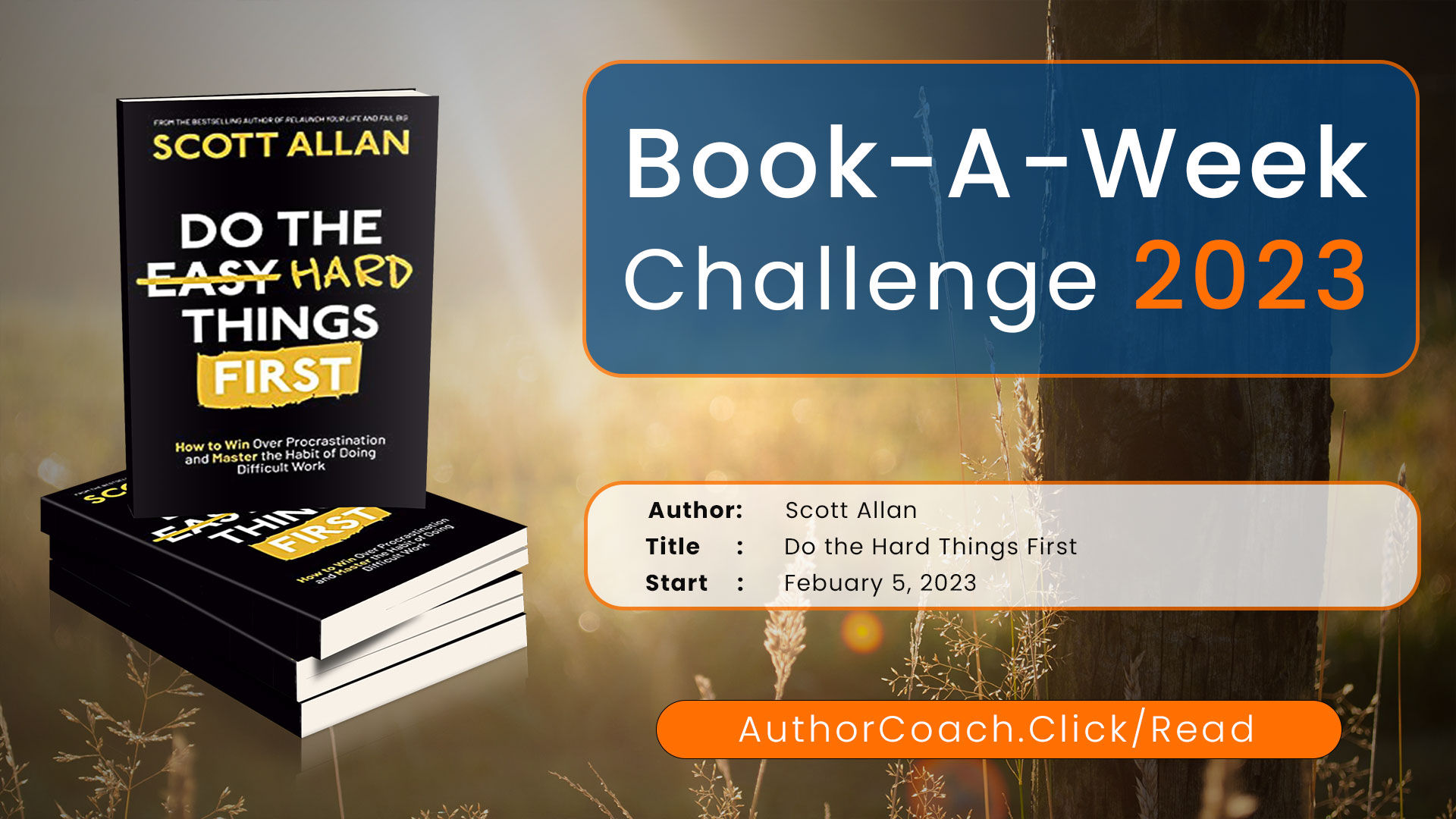In “Do the Hard Things First: How to Win Over Procrastination and Master the Habit of Doing Difficult Work,” author Scott Allan provides a practical guide for you to overcome procrastination and cultivate the discipline necessary to tackle challenging tasks.
Drawing on psychological research, personal experiences, and proven strategies, Allan offers actionable steps for you to overcome resistance to difficult work and develop the habits needed to achieve your goals.
As a Christian non-fiction author, you can benefit from applying these principles to your writing and personal life, creating work that emotionally impacts readers and inspires them to make meaningful changes in their lives.
Takeaway #1: Break Free from the Procrastination Trap
Allan emphasizes the importance of overcoming procrastination, which can be a significant barrier to achieving your goals. By developing strategies to tackle difficult tasks head-on, you can maintain momentum in your writing and personal life, inspiring readers to make changes in their own lives. Consider the following biblical passages to support this takeaway:
- Proverbs 6:6-8: “Go to the ant, you sluggard! Consider her ways and be wise, which, having no captain, overseer or ruler, provides her supplies in the summer, and gathers her food in the harvest.”
This verse encourages you to emulate the industrious nature of the ant and take initiative in your work. By overcoming procrastination and tackling difficult tasks, you can create work that emotionally impacts readers and encourages them to make changes in their lives. - Ephesians 5:15-16: “See then that you walk circumspectly, not as fools but as wise, redeeming the time, because the days are evil.”
This passage serves as a reminder of the importance of using time wisely and effectively. By breaking free from the procrastination trap, you can make the most of your time and create work that inspires readers to take action in their own lives. - Colossians 3:23: “And whatever you do, do it heartily, as to the Lord and not to men.”
This verse emphasizes the importance of dedicating yourself fully to your work, which includes overcoming procrastination. By tackling difficult tasks with enthusiasm and determination, you can create work that resonates with readers and encourages them to make meaningful changes in their lives.
Takeaway #2: Develop Discipline and Consistency
Allan highlights the importance of discipline and consistency in achieving your goals. By developing habits that promote focus and perseverance, you can create work that emotionally impacts readers and inspires them to make changes in their own lives.
The following biblical passages support this takeaway:
- 1 Corinthians 9:24-25: “Do you not know that those who run in a race all run, but one receives the prize? Run in such a way that you may obtain it. And everyone who competes for the prize is temperate in all things. Now they do it to obtain a perishable crown, but we for an imperishable crown.”
This passage encourages you to approach your work with discipline and dedication, pursuing your goals with a focused and consistent effort. By cultivating discipline and consistency in your writing, you can create work that inspires readers to make meaningful changes in their lives. - Proverbs 13:4: “The soul of a lazy man desires, and has nothing; but the soul of the diligent shall be made rich.”
This verse underscores the importance of diligence and discipline in achieving success. By developing the habit of doing difficult work and maintaining consistency, you can create work that emotionally impacts readers and encourages them to make meaningful changes in their lives. - Hebrews 12:11: “Now no chastening seems to be joyful for the present, but painful; nevertheless, afterward it yields the peaceable fruit of righteousness to those who have been trained by it.”
This passage serves as a reminder that discipline and perseverance can lead to growth and positive outcomes. By embracing the challenges of difficult work, you can create work that inspires readers to persevere in their own personal and spiritual journeys.
Takeaway #3: Embrace a Growth Mindset
Allan emphasizes the importance of adopting a growth mindset, which involves viewing challenges and setbacks as opportunities for learning and personal development. By embracing a growth mindset, you can model resilience and adaptability for your readers, encouraging them to make changes in their own lives.
Consider the following biblical passages to support this takeaway:
- Romans 5:3-4: “And not only that, but we also glory in tribulations, knowing that tribulation produces perseverance; and perseverance, character; and character, hope.”
This passage highlights the transformative power of facing challenges and setbacks with a growth mindset. By embracing the difficulties of your writing process and personal life, you can inspire readers to adopt a growth mindset and persevere through their own trials. - Philippians 4:13: “I can do all things through Christ who strengthens me.”
This verse serves as a reminder of the power of faith in overcoming obstacles and fostering a growth mindset. By relying on your faith and embracing a growth mindset, you can create work that emotionally impacts readers and encourages them to make changes in their lives. - James 1:2-3: “My brethren, count it all joy when you fall into various trials, knowing that the testing of your faith produces patience.”
This passage encourages you to view challenges and trials as opportunities for growth and spiritual development. By adopting a growth mindset and sharing your experiences with readers, you can create work that inspires readers to persevere through their own struggles and make meaningful changes in their lives.
“Do the Hard Things First” by Scott Allan offers valuable guidance for you as a Christian non-fiction author seeking to emotionally impact your readers and inspire them to make meaningful changes in their lives.
By breaking free from the procrastination trap, developing discipline and consistency, and embracing a growth mindset, you can create work that not only informs but also transforms your readers, empowering them to overcome challenges and achieve their goals. Integrating these takeaways, supported by biblical wisdom, can enable you to effectively engage and transform your readers, ultimately empowering them to pursue their own spiritual and creative callings.


Leave a Reply